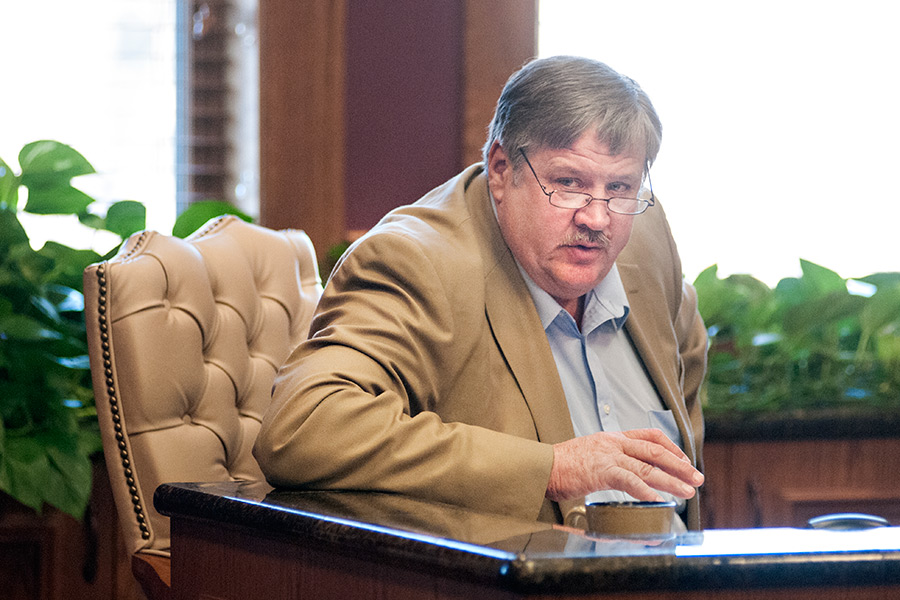A Flathead County commissioner is crying foul on a pair of letters sent from the commission to state legislative committees, saying neither letter received proper public notice or input.
Both letters were sent in support of pieces of legislation. One, dated March 12 and sent on March 16, was sent in support of House Bill 496, which sought to establish a task force to study the feasibility of transferring federal lands to state management.
The other letter, dated March 16, was sent to “reaffirm” the commission’s opposition to the proposed water compact with the Confederated Salish and Kootenai Tribes.
Commissioners Pam Holmquist and Phil Mitchell signed both letters.
Commissioner Gary Krueger said last week he was not involved in writing these letters, nor were they put on the commission’s agenda, and neither letter received public comment.
However, in an interview, Holmquist said the commission was working within its right to send letters of support without having to notify the public with a hearing.
“Letters of support don’t always go on the agenda, and I don’t believe they have to go on the agenda because we are a representative form of government. We represent our constituents,” Holmquist said. “We’re not doing anything wrong.”
Krueger said he wasn’t unsure if the letter supporting HB 496 was even sent from the office, but commission staff reported mailing it on March 16. The commission did not hold hearings to discuss such a letter, Krueger said.
“This is happening more and more,” Krueger said. “I have put up with it long enough. I tried to work around it. If that letter about (HB) 496 went out, that’s something that has never been discussed and has never been before the public.”
Holmquist said letters of support can’t always make it to the agenda due to the fast-paced legislative schedule, though some have, such as the commission’s previous letters regarding the water compact.
“When it’s at the Legislature, you can’t take the time to put it on the agenda always,” she said. “Our letter for HB 496, we didn’t even get it there in time.”
The bill was tabled in the Legislature’s Natural Resource Committee.
Regardless of the letter’s timing, Krueger disagreed with how it was sent.
“I, as a commissioner, have heard strong and clear that the public must be included in the decision-making,” Krueger said. “It must be on the agenda when decisions on the commission are made.”
Krueger said the framework for sending letters of endorsement from the commission starts with one commissioner writing it and handing it off to commission staffers so they can pass it along to the other commissioners. Since there are only three members on the commission, two members discussing such a letter would be considered a quorum and they would be performing county business without having properly notified the public.
Once each commissioner gives their edits or input on the letter, then the rough draft would be on the agenda and up for a public vote.
Holmquist described much of the same system, other than having each letter go to a vote. If only one commissioner were to agree with a letter, it wouldn’t go out, she said.
“We’ve been doing that here as long as I’ve ever been here,” she said. “I’ve never seen anywhere where the law says we can’t do that.”
Deputy County Attorney Tara Fugina said she wasn’t aware of an official set of rules about the commission’s letter-writing process, and said she could not comment on either letter to the Legislature because she hadn’t seen them.
Krueger asserted that all previous letters of opposition to the compact have gone to a vote, with the exception of the March 16 letter, and remained upset with the letters.
“I cannot as an elected official of Flathead County sit by and watch this happen without saying something,” Krueger said. “It would not do justice to the public. The public absolutely in all instances has the right to know. And if we can’t put things on our agenda, we shouldn’t be sending it.”
Commissioner Phil Mitchell did not return calls seeking comment on the matter.
